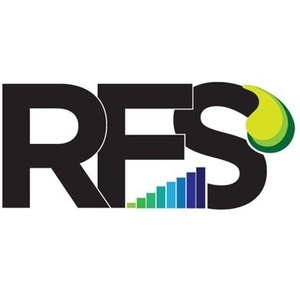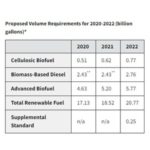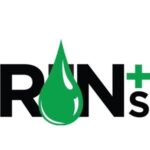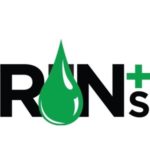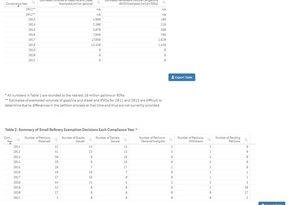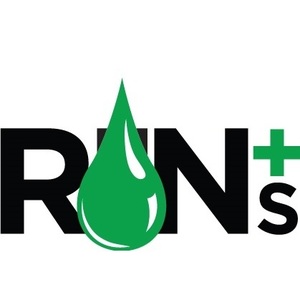EPA proposes to further delay RFS compliance deadlines
Energy Disrupter
ADVERTISEMENT
The U.S. EPA on Nov. 18 issued a proposed rule further delay certain Renewable Fuel Standard compliance dates, including those for compliance years 2019, 2020 and 2021. The agency has not yet proposed renewable volume obligations (RVOs) for compliance years 2021 and 2022 despite statutory requirements for those RVOs to be finalized by Nov. 30, 2020, and Nov. 30, 2021, respectively.
The EPA in March 2021 published a final rule extending the RFS compliance and attest engagement report deadlines for 2020. The attest engagement report deadline for 2021 was also extended, along with the 2019 compliance and attest engagement report deadlines for small refiners. The proposed rule issued on Nov. 18 aims to enact further deadline delays and change the way EPA sets RFS compliance and attest engagement reporting deadlines moving forward.
In its previous rulemaking, the EPA extended the 2019 compliance deadline for small refineries from March 31, 2020 to Nov. 30, 2021. The agency’s new proposal aims to set the 2019 compliance deadline for small refineries at the next quarterly reporting deadline that is at least 60 days following publication of the 2021 RVOs in the Federal Register.
In the proposed rule, the agency explains the delay in the 2019 compliance deadline for small refiners is needed because the agency is still considering how to adjust its small refinery exemption (SRE) policy in light of the Tenth Circuit Court of Appeals’ January 2020 decision and the U.S. Supreme Court’s subsequent ruling on SREs handed down in June 2021, including holdings from the Tenth Circuit case that were not appealed. As a result, the agency said there is still uncertainty regarding 2019 SRE petitions. The EPA is proposing to extend the deadline for all small refineries regardless of whether they have an SRE petition pending for 2019 because those that do not may elect to submit petitions in the future. Under the proposal, small refineries that have already submitted their 2019 compliance reports would be allowed to revisit those compliance reports before the new deadline.
The previous rulemaking also extended the 2020 compliance deadline for all obligated parties from March 31, 2021 to Jan. 31, 2022. EPA is now proposing to extend the RFS compliance deadline for the 2020 and 2021 compliance years for all obligated parties. The proposed 2020 compliance deadline is the next quarterly reporting deadline after the 2019 compliance deadline for small refineries and the proposed 2021 compliance deadline is the next quarterly reporting deadline after the 2020 compliance deadline.
For 2019, 2020, and 2021, the EPA is proposing to extend the associated attest engagement reporting deadlines to the next June 1 annual attest engagement reporting deadline that is at least 60 days after the applicable 2019, 2020 and 2021 compliance deadline.
The agency is also proposing to change the way in which future RFS compliance and attest engagement reporting deadlines are determined. Starting with compliance year 2022, the annual compliance reporting deadline would be the latest date of three options, including March 31 of the subsequent calendar year, the next quarterly reporting that is at least 60 days after publication in the Federal Register of a final rule establishing the subsequent compliance year’s RVOs, or the next quarterly reporting deadline under 40 CFR 80.1451(f)(2) after the annual compliance reporting deadline for the prior compliance year. Similarly, the annual attest engagement reporting deadline would be set at the latest of two options, including June 1 of the subsequent calendar year or the next June 1 annual attest engagement reporting deadline that is at least 60 days after the annual compliance reporting deadline.
The EPA said the proposed extensions aim to ensure obligated parties are positioned to fully comply with their RFS obligations by ensuring that each’s year’s compliance deadline falls after the standards for the subsequent compliance year are known. The proposed approach for compliance year 2022 and thereafter would also avoid EPA having to repeatedly extend compliance deadlines for obligated parties should promulgation of the subsequent year’s standards be delayed, according to the agency.
Representatives of the biofuels industry are slamming the EPA’s proposed rule and calling on the agency to propose long-delayed RVOs for 2021 and 2022.
The Renewable Fuels Association is calling on refiners and the EPA to meet RFS deadlines. “It’s long past time for refiners to demonstrate compliance with their 2019 and 2020 renewable volume obligations,” said Geoff Cooper, president and CEO of the RFA. “There’s no good reason for EPA to kick the can down the road again, which only adds uncertainty and instability to the marketplace. Refiners and the EPA need to respect and meet deadlines, and we likewise call on EPA to immediately publish the long-overdue renewable volume obligations for 2021 and 2022. We had hoped things would be different under this administration, but EPA continues to miss its deadlines and create confusion in the marketplace. The rural economy needs and deserves the market certainty and predictability the Renewable Fuel Standard was intended to provide.”
Growth Energy stressed the EPA’s proposal will contribute to ongoing uncertainty. “EPA needs to release 2021 and 2022 RVOs immediately,” said Emily Skor, CEO of Growth Energy. “Further delaying compliance deadlines for previous RVO years does nothing but contribute to ongoing uncertainty in the marketplace. Sadly, even as our country faces rising gas prices, the EPA and the Biden Administration continue to give in to the loud voices of the oil industry without considering their detrimental impact on rural America.
“During his confirmation hearing, the EPA Administrator said he wanted to get the RFS back on track and reintroduce transparency into the program,” Skor added. “To do so, EPA must issue strong 2021 and 2022 RVOs and ensure that the 15-billion-gallon biofuel blending requirements are met. It is past time for EPA to act.”
The National Biodiesel Board expressed frustration with further RFS delays. “The Biden administration and EPA are sending the wrong signals on fuel availability and gas prices,” said Kurt Kovarik, NBB’s vice president of federal affairs. “The uncertainty they are creating for the RFS will undermine biodiesel and renewable diesel producers, blow up demand for cleaner fuels, and derail the nation’s progress toward carbon reductions. This is simply a gift to refiners who have ignored the RFS obligations for more than a year and a half and are demanding the administration bail them out. EPA needs to finalize RFS rules now.”
The Advanced Biofuels Business Council called the EPA’s proposal a handout to refiners. “The Biden EPA is saying that oil companies are free to ignore clean energy laws until it’s politically convenient,” said Brooke Coleman, executive director of the ABBC. “This license to delay is a lucrative handout to the same refiners who played politics with the RFS under President Trump while pocketing millions in regulatory favors. It’s past time for the EPA to enforce the law, as written, and give producers, farmers, and other responsible stakeholders the certainty they need to invest in homegrown energy, hold down prices at the pump, and reduce emissions.”
The Iowa Renewable Fuels Association said the proposal signals bad news for farm country. “The details of today’s action by the EPA to delay RFS compliance deadlines seems to indicate very bad news is headed toward farm country,” said Monte Shaw, executive director of the IRFA. “If EPA were only delaying the deadlines because of pending small refinery exemptions, then they would only delay the deadlines for small refineries. In fact, that’s exactly what they did for 2019. But the EPA proposed delaying the 2020 deadline for all obligated parties. This discrepancy appears to support the rumors and reports that EPA is preparing to take the unprecedented and illegal step of reopening the finalized 2020 RFS rule in order to reduce the volumes and destroy biofuel demand.
“We hope we are wrong and the difference can be explained away, but the different treatment of the compliance years must be for a reason,” Shaw added. “It is absolutely perplexing why the Biden EPA would delay and potentially plan to undermine the only federal law that is designed to reduce carbon emissions. To do so now, at a time of high gasoline prices, makes this action doubly confounding. IRFA urges the Biden EPA to follow the law and to implement the RFS fully and faithfully.”
The Iowa Biodiesel Board called the proposed rule alarming. “Iowa biodiesel producers and soybean farmers are disheartened by the Biden administration’s continued placation of the petroleum industry,” said Grant Kimberley, executive director of the IBB. “That comes at our expense. Allowing refiners to double down on their violations of the RFS law is outrageous, and deprives Americans of the benefits of renewable fuels.
“If a low-carbon future is truly the goal of this administration, then it defies logic to continue penalizing the biofuels industry, which can reduce carbon today,” Kimberley continued. “Biodiesel reduces greenhouse gases by an average of 74 percent compared to petroleum diesel, while providing green jobs and supporting the farm economy. We urge EPA to stop bending to the petroleum industry and finalize RFS rules immediately.”
A public comment period on the proposed rule is open through Jan. 3. A virtual public hearing is scheduled for Dec. 3. The deadline to register for the hearing is Nov. 30. Additional information, including a full copy of the proposed rule, is available on the EPA website.

